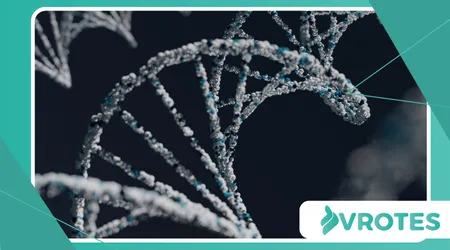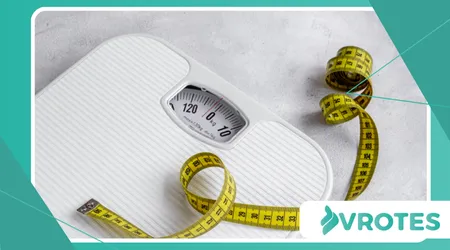Nutrigenomics: How Your DNA Shapes Your Ideal Diet

Nutrigenomics. Imagine a diet plan as unique as your fingerprint. A future where your food choices aren’t based on generic advice but are precisely tailored to your genetic makeup.
Anúncios
This is the promise of nutrigenomics, a fascinating field that explores the intricate relationship between nutrition and your genes.
For years, we’ve relied on one-size-fits-all dietary guidelines. But what if the “perfect” diet for your friend isn’t right for you?
Our bodies process nutrients differently, and this variability is rooted in our DNA. Nutrigenomics aims to unlock this genetic code, providing a roadmap for optimal health and well-being.
The Blueprint in Your Cells
Our genes hold the instructions for how our bodies function. These include how we metabolize vitamins, absorb minerals, and even how we respond to certain fats and carbohydrates.
Anúncios
Tiny variations in these genes, known as single nucleotide polymorphisms (SNPs), can have a big impact.
Consider a simple analogy: think of your DNA as a vast, complex orchestra. Each gene is a specific instrument.
Certain nutrients act as conductors, influencing which instruments play louder or softer.
Nutrigenomics helps us understand this complex symphony, allowing us to compose a diet that creates a perfect harmony.
For example, some people have a genetic variation that affects their ability to metabolize folate. They may need a higher intake of this B vitamin to maintain healthy cellular function.
A personalized approach, guided by their genetic profile, can prevent potential deficiencies.

The Science Behind a Personalized Plate
The science of nutrigenomics is about more than just identifying disease risks. It’s about optimizing health and preventing future issues.
It helps us understand our individual predispositions to certain health conditions, allowing for proactive, rather than reactive, health management.
Read here: Why Your Morning Coffee Might Sabotage Iron Absorption
One well-documented example is the MTHFR gene. A common variation in this gene can impair the body’s ability to convert folate into its active form, L-methylfolate.
Individuals with this variant may benefit from consuming foods rich in already-activated folate or even targeted supplementation.
This is a stark contrast to a generic recommendation.
Instead of simply advising “eat your leafy greens,” a nutrigenomics report could specify the need for higher amounts or even different types of supplementation.
This is truly the next frontier in personalized nutrition.
How Your Genes Influence What You Crave
Ever wonder why you can’t stand the taste of cilantro? Or why coffee has you buzzing all day, while your friend can drink a pot and sleep soundly?
Your genes are often the reason. Genetic variations can influence taste perception and caffeine metabolism.
For instance, the TAS2R38 gene determines your ability to taste a bitter compound found in cruciferous vegetables like broccoli.
See how interesting: How Ancient Fasting Rituals Align with Autophagy Research
Those with a specific variant may find these vegetables unpleasantly bitter. Understanding this can help create a diet plan that is not only healthy but also sustainable and enjoyable.
This goes beyond simple preferences. It’s about designing a diet that you can stick with long-term.
If a particular food makes you feel sluggish due to a genetic predisposition, a nutrigenomics report can help you find suitable, more beneficial alternatives.
A Glimpse into the Future of Nutrition
The field is still evolving, but the potential is enormous.
A study published in the journal Cell Metabolism in 2021 found that individuals following a diet tailored to their genetic profile had better health outcomes compared to those on a generic diet.
The study highlighted improved blood sugar control and weight management.
Read more: Why “Toxic Positivity” Can Delay Healing Mental
Imagine a world where your doctor can review your genetic blueprint and prescribe a diet as meticulously as they would a medication.
That future is not far off. It represents a paradigm shift from treating symptoms to addressing the root cause of nutritional imbalances.

Here is a simplified example of how genetic variations might influence dietary recommendations:
| Genetic Variant | Associated Trait | Potential Dietary Recommendation |
| APOA5 | Fat metabolism | Limit saturated fats, focus on healthy monounsaturated and polyunsaturated fats. |
| FTO | Hunger signals | Focus on high-fiber foods and lean proteins to promote satiety and manage caloric intake. |
| MTHFR | Folate metabolism | Ensure adequate intake of folate-rich foods or consider a methylated folate supplement. |
This personalized approach is not about creating a restrictive diet but about creating a smarter one.
It’s about empowering people with knowledge so they can make informed choices.
Isn’t it time we stopped guessing what our bodies need and started listening to our DNA?
Empowering Your Health Journey
Understanding your genetic profile is a powerful tool in your health arsenal. It moves us away from generic advice and toward a highly personalized, effective approach to nutrition.
Nutrigenomics isn’t a quick fix, but a lifelong guide to optimal well-being.
By integrating this cutting-edge science, we can unlock our full health potential. It is about working with our bodies, not against them, to achieve lasting health and vitality.
Frequently Asked Questions
What is the cost of a nutrigenomic test?
Prices vary widely depending on the provider and the number of genes analyzed. Tests can range from a few hundred to several thousand dollars.
Always choose a reputable company that provides clinical interpretation.
Can a nutrigenomic test predict all health risks?
No. A test can show predispositions, but lifestyle and environmental factors also play a significant role. It is one piece of the puzzle, not the whole picture.
Is nutrigenomics the same as personalized nutrition?
Nutrigenomics is a key component of personalized nutrition, but the latter also includes factors like lifestyle, gut microbiome, and health status.
Do I need a doctor to interpret my results?
It is highly recommended. A qualified healthcare professional or a registered dietitian with expertise in nutrigenomics can provide accurate interpretation and safe, effective dietary advice based on your results.
Is it safe to get a test?
Yes. The test is typically a simple cheek swab or saliva sample. The primary concern is the accuracy and clinical validity of the provider.
++ How your diet shapes your genes
++ DNA-Driven Eating: How Your Genes Shape Your Perfect Diet
